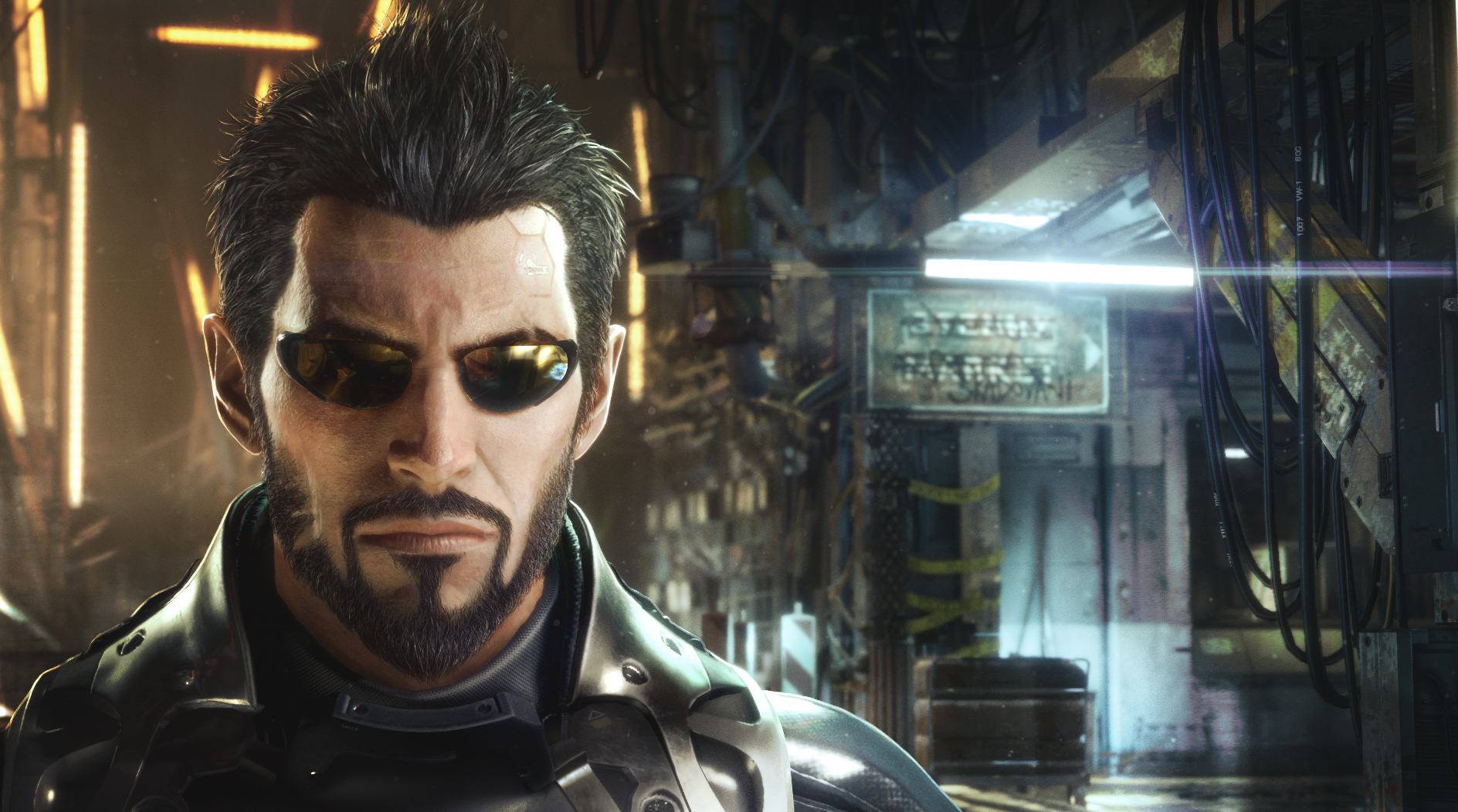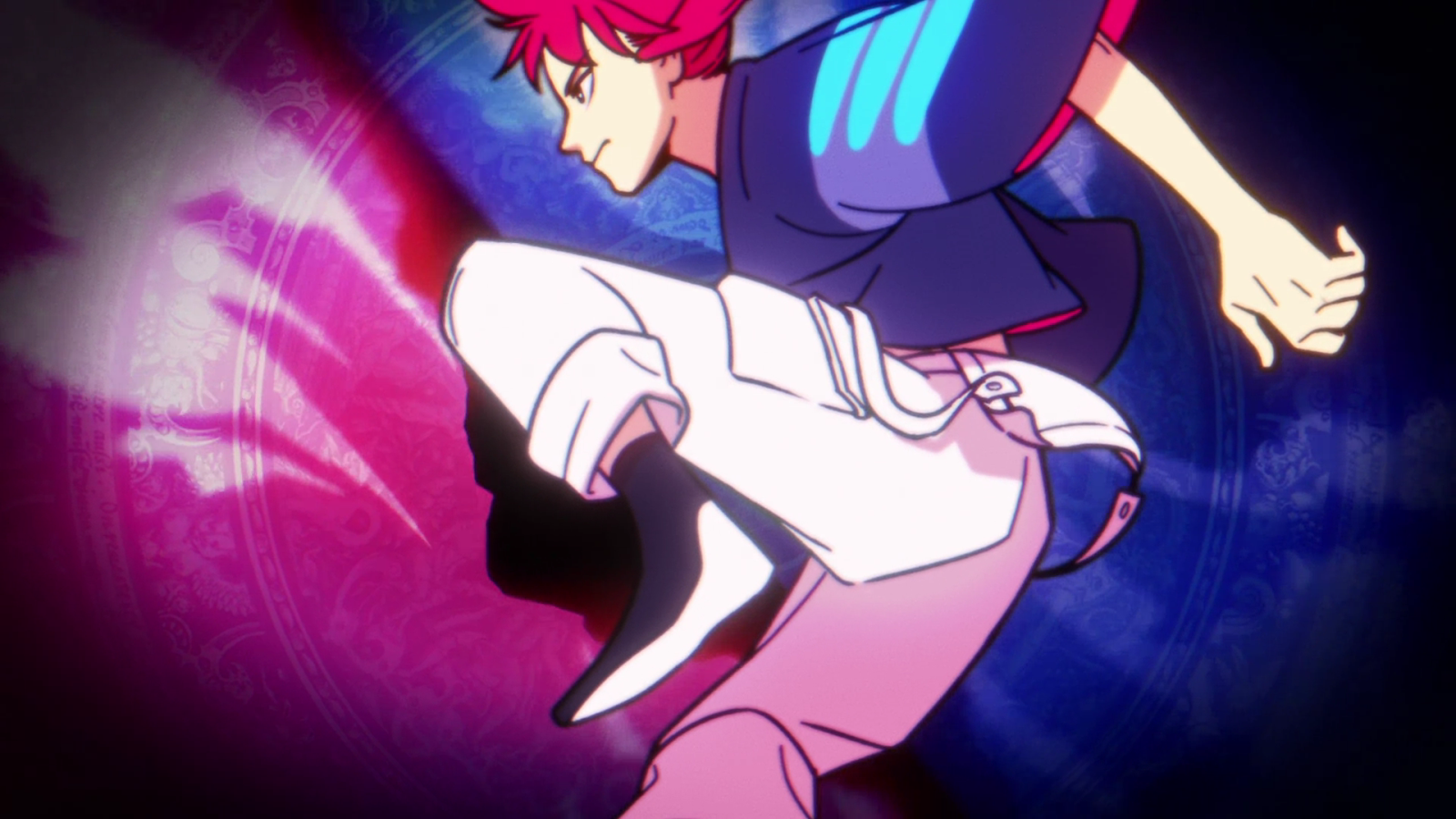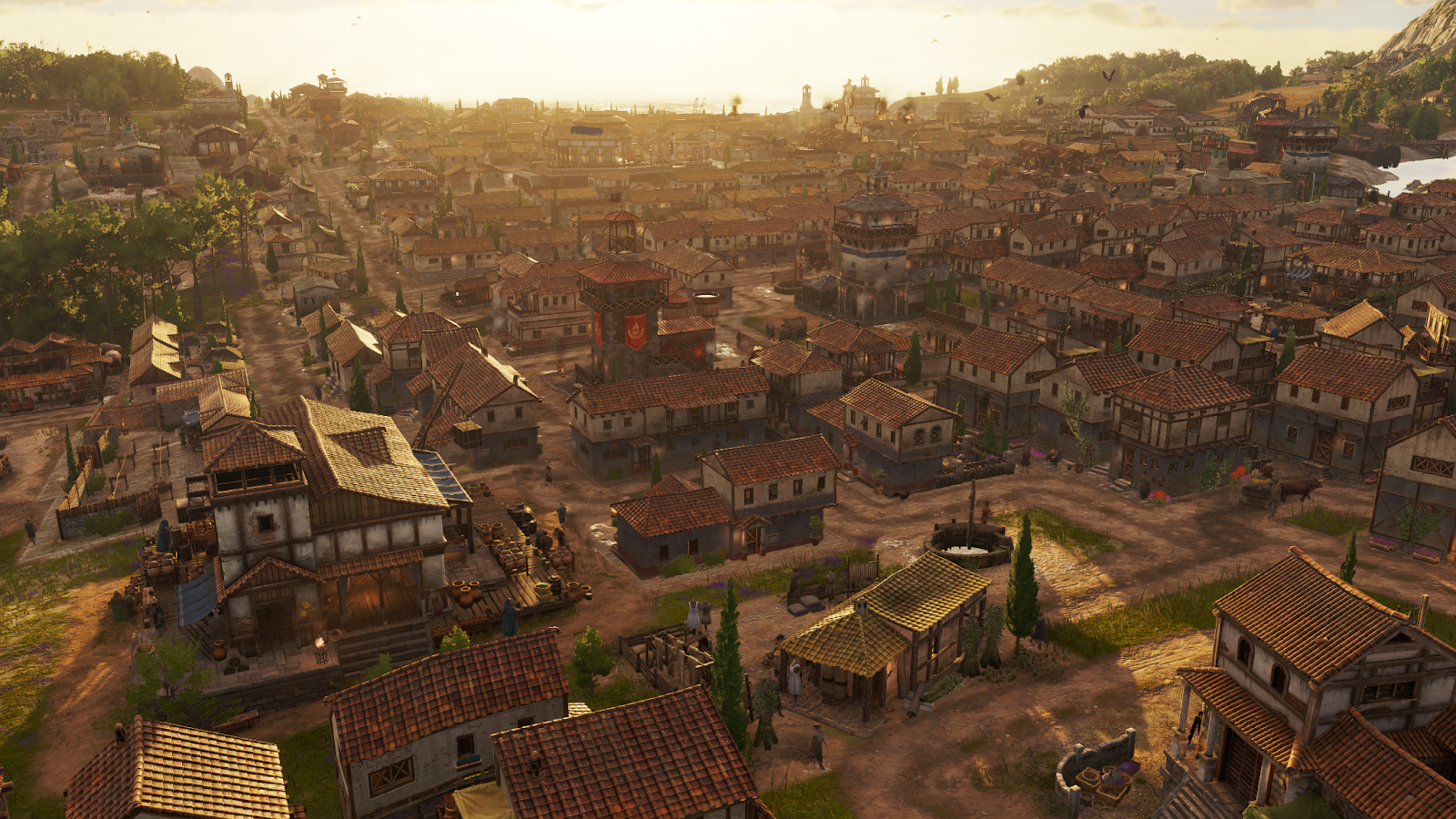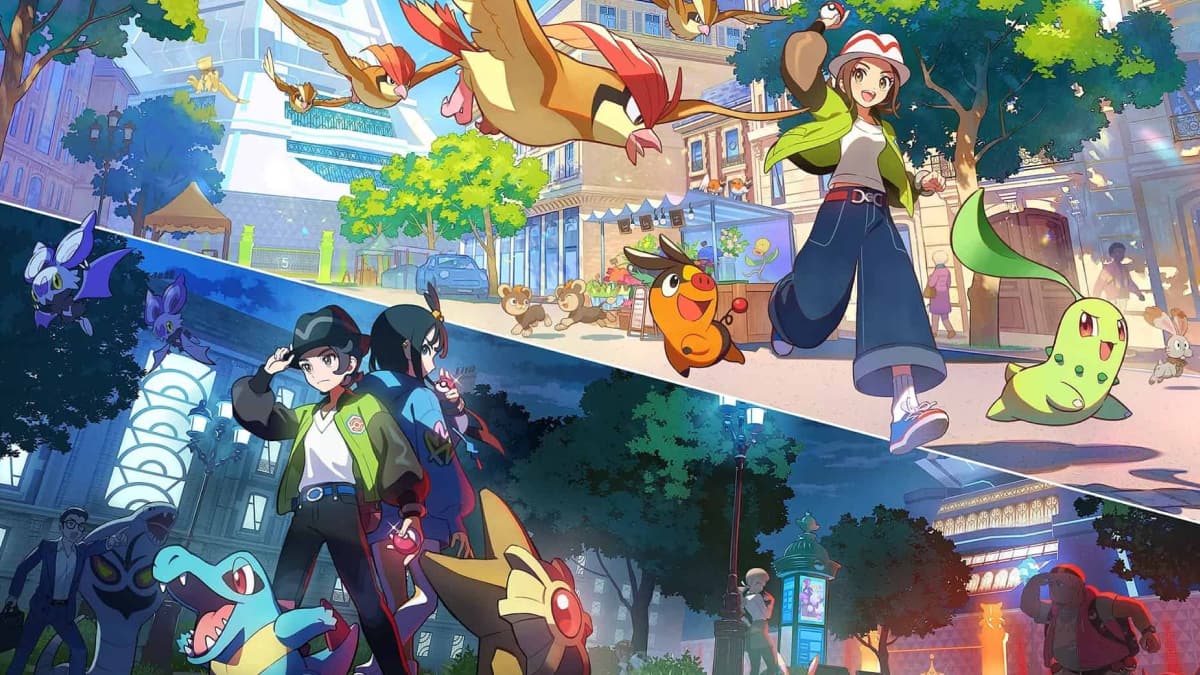You can trust VideoGamer. Our team of gaming experts spend hours testing and reviewing the latest games, to ensure you're reading the most comprehensive guide possible. Rest assured, all imagery and advice is unique and original. Check out how we test and review games here
Consider Adam Jensen: reluctant hero and poster boy of not asking for things, especially all the superhuman mechanical augmentations he has. (Where do the augmentations stop, do you think? Consider that, briefly.) Here is Adam now, caught up in the tension between augmented and unaugmented citizens, and trying to stop the people escalating it. After the events of Deus Ex: Human Revolution he’s ended up working for an Interpol task force, but is also secretly in league with a hacker collective. We accompany him on his first person stealth-and-shooting espionage adventure in Europe. He could probably use the help, to be honest.
Jensen lives in Prague now. It’s a bleak but lovely playground, fusing old world europe with future dystopia: 45 per cent cobbled streets, 45 per cent neon, with the remainder funneled into incidents of police brutality next to gleaming mega banks. One of the things I loved most about Mankind Divided was the advertising – as in, the ads in the game. A metro station entrance is made to look like an open mouth, another screen juts over the street to show a businessman falling from the sky, and the red light district is lined with holographic women. When they’re on, the light of the ads is almost all you can see; when they’re off you see what they’re advertising escape from.
A new street drug is killing people. A woman is found dead in an alley. A communist news pamphlet is digging around. I got to know Prague, with all its surprising depth and secrets. I knew which alley would take me out near the pedestrian bridge, and how to go through the sewers to the metro station. But the city is also the occasionally razor-wired stage for social unrest. You see augs living in slums, arbitrarily blocked from certain areas – metro stations and even some benches are segregated – and constantly being searched and hassled by the local police. The game explicitly equates the treatment of augmented citizens with racism (which I’m sure can and will be discussed in depth by a lot of people), and for me the concept didn’t quite work.
Jensen is heavily augmented, and gets called ‘clank’ with some serious side eye from ‘normal’ citizens, but he’s also a weaponised super soldier with Interpol-level security clearance and a swanky loft apartment. Jensen gets stopped at checkpoints, but, crucially, is always let through, and is never actually scared – he continually gives the local police a ‘fuck you’ attitude, which I understand is not an option for African Americans in real life. Even as curfews are introduced it’s not a huge problem for Jensen, mainly because he can turn invisible or fire an actual blade out of his actual arm. The feeling of threat never really touched him, and so it never really touched me. I’m not saying Jensen has been incorrectly characterised himself, but that his situation in the game wasn’t the best lens to hold up to oppression, and, more than that, the game wants every player choice to feel valid, so never actually draws any conclusions either way. The augmentation metaphor does not end up a searing, incisive one.
Many players, however, will be more concerned with being an elite agent, able to infiltrate and exfiltrate buildings at will like a whisper – a ghost! – yet also brutally murder enemies if desired, and how badass this feels, and unfortunately Deus Ex: Mankind Divided doesn’t feel pants-dampeningly awesome. It’s not that Adam Jensen can’t do loads of cool s***: he can, with a bunch of new cool s*** up to and including turning his arm into a concussive weapon and shooting people with it. The raft of new abilities, however, requires much more admin in the field: it breaks up the action, and is compounded by unwieldy default controls, designed by the developers as the optimal play experience. Inventory and augmentation menus are mapped to the thumbsticks, but so is the capricious cover system, and there are a lot of different button combos to get your head around. Square immediately followed by L2 puts your weapon away, but hold square for too long and you drop into the weapon specific menu, whilst square and R2 will switch weapon. I imagine Adam Jensen’s field reports include a lot of ‘… The enemy agent was kind enough to not shoot me while I changed weapons, swapped ammo, and crafted a biocell on the fly to recharge my abilities…’
Mankind Divided has revamped some things in a positive way: there are more routes to completion for the curious minded player. I didn’t play a mission which I couldn’t adapt to as the situation changed around me – either through stealth and cunning or, when all else failed, a shotgun blast to the face – but none of this makes the pace of covert ops any slicker, and main missions take you away from the infinitely more open-area play. They tug on the thread of between two and three conspiracy stories at once, but all end up with a similar formula: fly into a one-shot location that can be various degrees of interesting (Golem City Market and London are highlights; a research facility in the alps is not), find the intel and/or bad man you were sent after, and fly out again.
Mankind Divided hasn’t lost the soul of a Deus Ex game. It has it in Jensen’s home city, a fraught, sparkling, changeable place from which emerge stories both tragic and interesting, all proffered by NPCs who sound unfortunately (or possibly fortunately) like those meerkats in car insurance adverts. You move amongst them and their awkward facial animations, and can alter the course of lives, unseen. The rest of the game is somehow dull in comparison, and doesn’t hit the heights it’s reaching for. In going for detail and variety it often overshoots into complexity; where it wants to be insightful it’s not as clever as it thinks it is. Mankind Divided isn’t bad, but it already feels a few years old. There’s even a neon-coloured VR-style hacking side game. That’s not very Adam Jensen. He never asked for that. Neither did I. But we’ll always have Prague.
The dark heart of Deus Ex: Mankind Divided
I wish Deus Ex: Mankind Divided had just made Prague bigger, put more side missions in, and let me have at it. Its character changes from day, to night, to a night with curfew warnings and all the lights switched off (I lost my bearings a bit in the dark).
The side missions you can discover are varied, and human, and interesting. Your augmentation guy is a lively young man who runs an aug surgery from the basement of his book shop (paper books being considered antiques in 2029). Through him you can get entangled with the Dvali, the local crime family, and end up doing favours for their second in command. Another, scruffier man will trade you snippets of information, and that can lead you, for example, into an ex-Picus employees’ flat and down another rabbit hole. Samizdat, the clandestine communist newsletter, is brought to your attention if you speak to one of the guys who works in your task force. Once you track them down there are many ways the interaction can end, one of which is a kind of bank robbery. I broke into a flat and ended up at a rave. I exonerated an innocent man suspected of murder. I gossiped with the bar tender in glowing red strip club.
The hope of meeting more branching paths and sleazy citizens in Prague is what kept me playing.
Deus Ex: Mankind Divided
- Platform(s): Linux, macOS, PC, PlayStation 4, Xbox One
- Genre(s): Action, RPG







